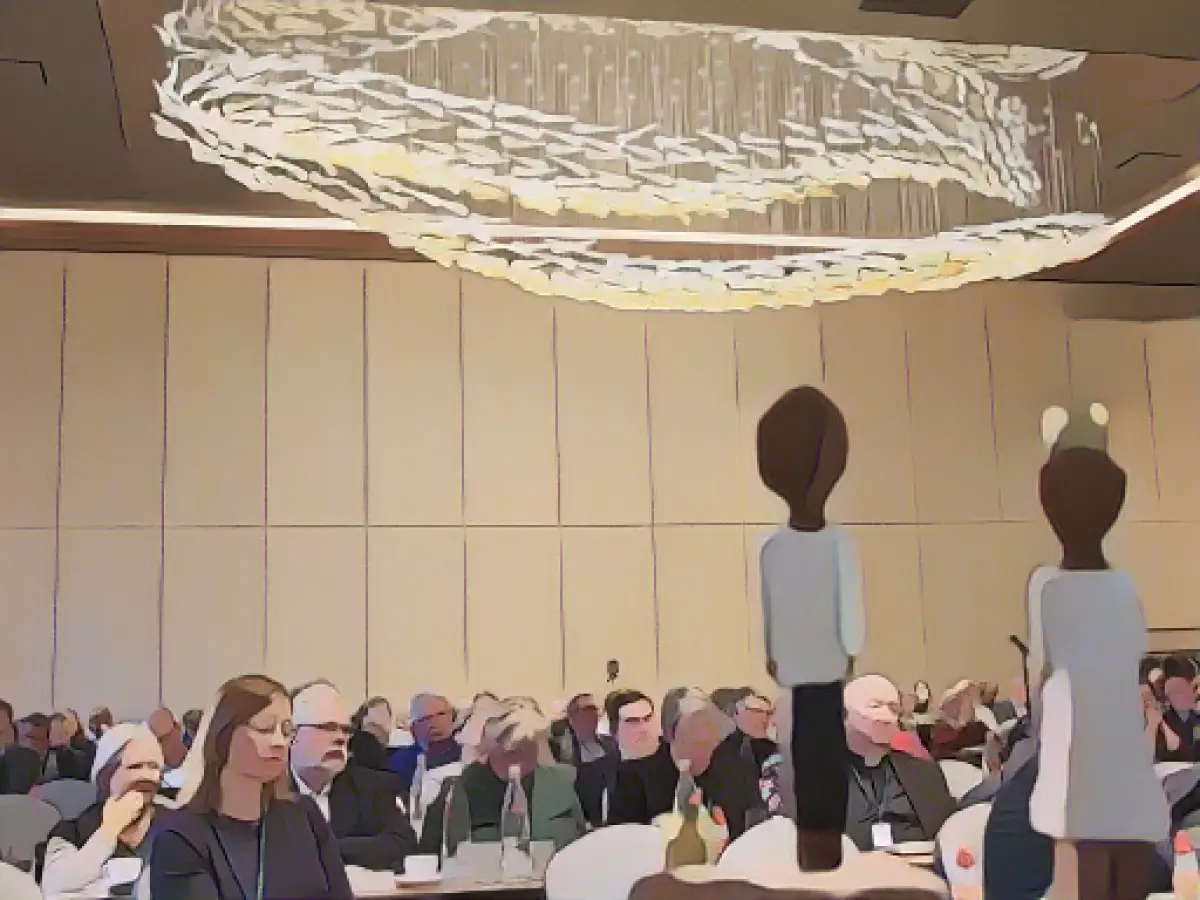Central Committee of Catholics adopts reform resolution
The Central Committee of German Catholics (ZdK), the umbrella organization of more than 20 million lay people, has created important legal foundations for the further reform process in the church. The ZdK plenary assembly in Berlin approved the statutes of the so-called Synodal Committee by a large majority, according to a spokesperson.
The committee is a result of the "Synodal Path", in which Catholics in Germany spent three and a half years discussing more co-determination, women's rights, diversity and other topics. At the end of the process in March this year, it was agreed that synodality - i.e. joint consultation and decision-making - should continue, namely in the committee.
Bishops still have to agree
The working basis of this committee is the statutes. In order for it to take effect, the German Bishops' Conference, as the second responsible body, must also pass a resolution after the ZdK. Against this background, Berlin Archbishop Heiner Koch called the ZdK vote an important sign for which he was grateful.
Over the next three years, the Synodal Committee will clarify how exactly the faithful in the Catholic Church can be heard and involved more and have a greater say. Following the work of the committee, a Synodal Council is to be established in which lay people can then have an equal say on a permanent basis.
Many German bishops support the project, which has been viewed with some suspicion by Rome. The first meeting of the committee around two weeks ago in Essen was attended by 23 of the 27 diocesan bishops, four of whom boycotted the meeting. The new committee also includes 27 delegates elected by the ZdK and 20 other people.
Abuse scandal triggers reform debate
The reform debate and efforts were triggered by the abuse scandal that rocked the Catholic Church more than ten years ago. Since then, more and more cases of sexual abuse and sexualized violence by officials have gradually come to light over the decades. In many cases, they were covered up for a long time. Since then, more and more believers have been running away from the church.
At the two-day ZdK meeting, which ended on Saturday, it was discussed that not only clerics, i.e. church officials, had supported the system. "We must face up to the analysis that there has been co-clericalism, looking the other way and cover-ups in parishes, councils and associations for decades," explained ZdK Vice President Wolfgang Klose. Coming to terms with sexual abuse remains on the ZdK agenda.
The reform resolution adopted by the Central Committee of German Catholics (ZdK) pertains to the Catholic Church, as the ZdK plays a significant role in this religious organization. The German Bishops' Conference, another influential body within the Catholic Church, must also approve the committee's statutes for them to become effective.
Source: www.dpa.com








